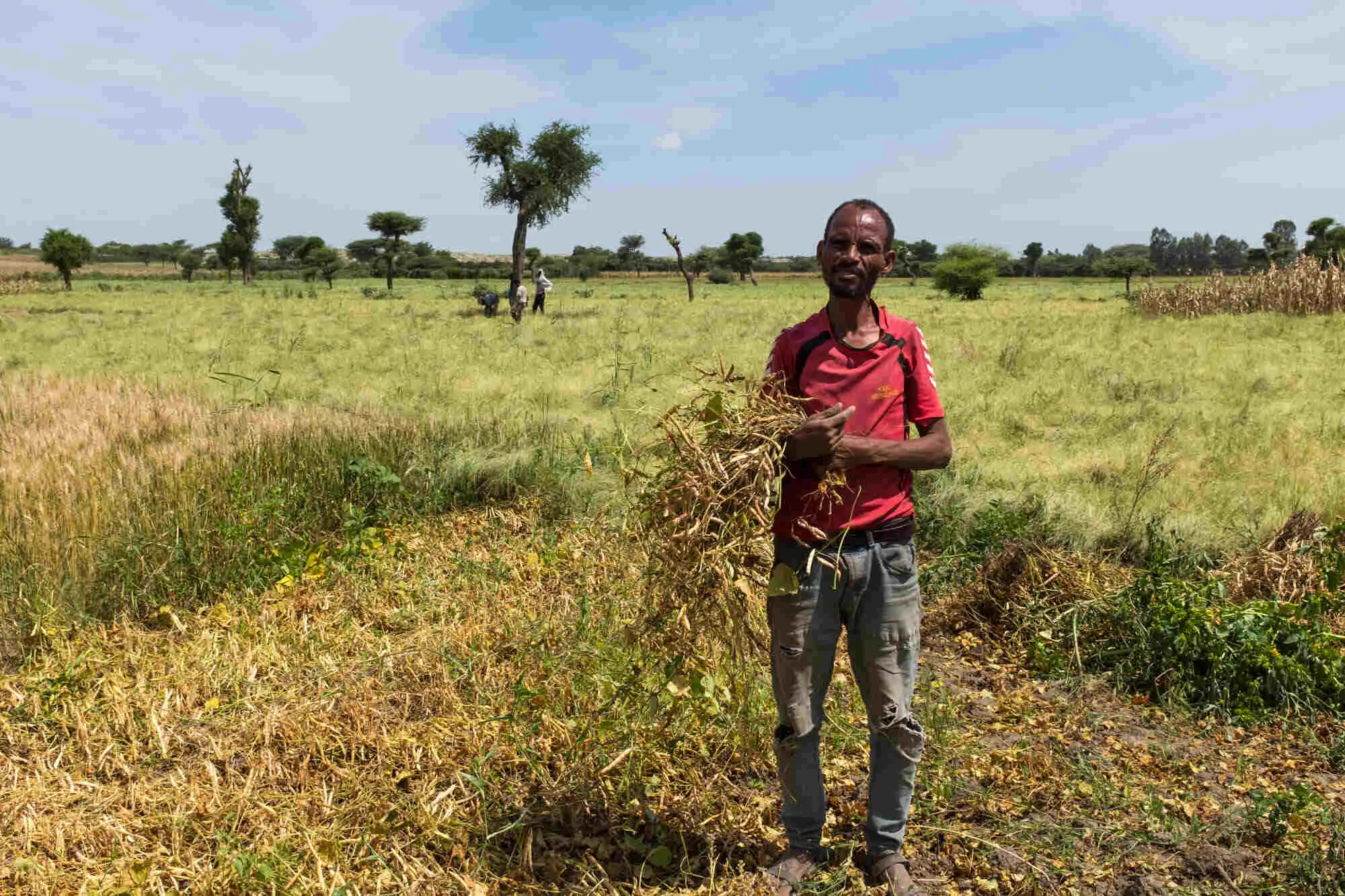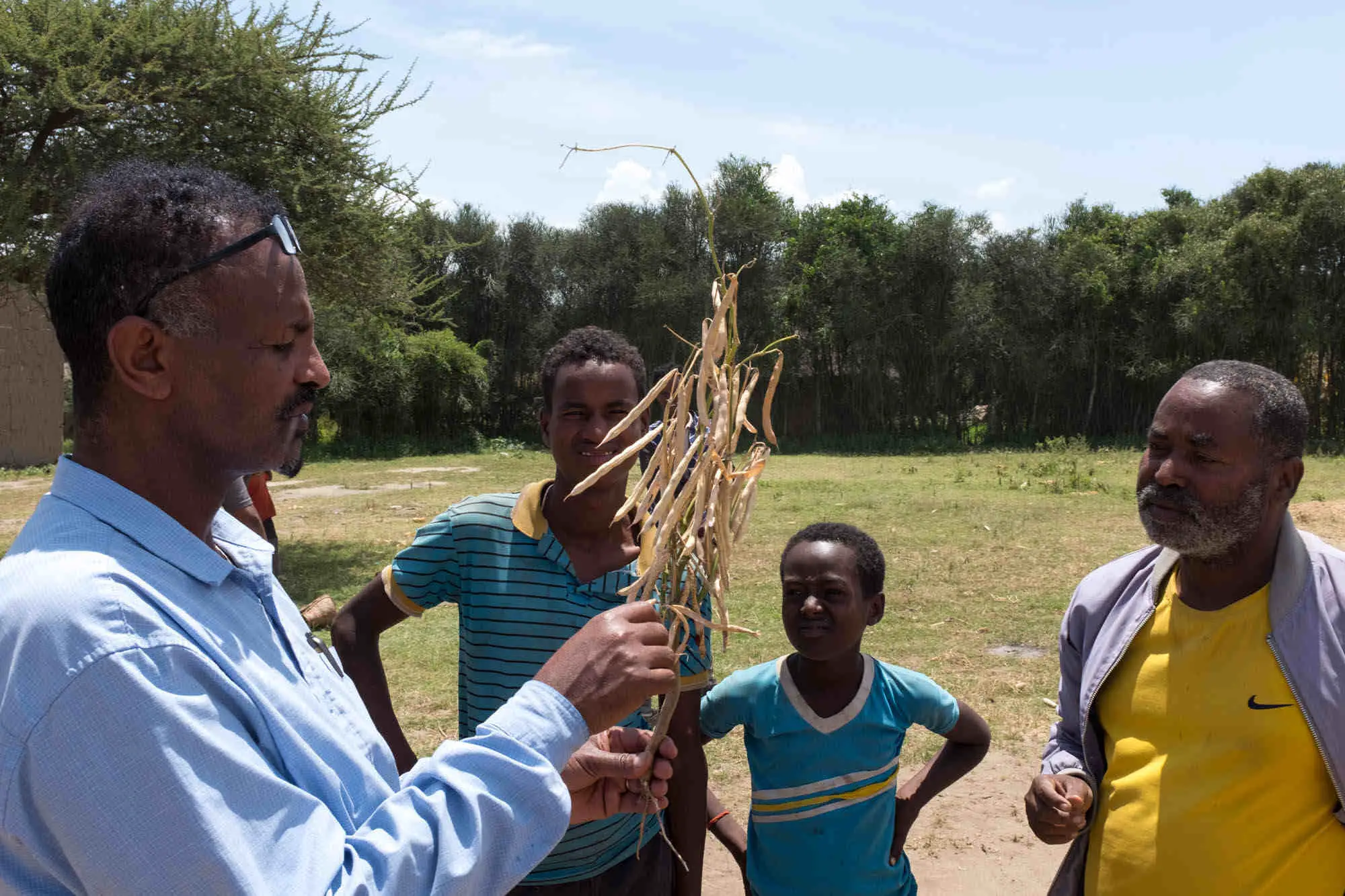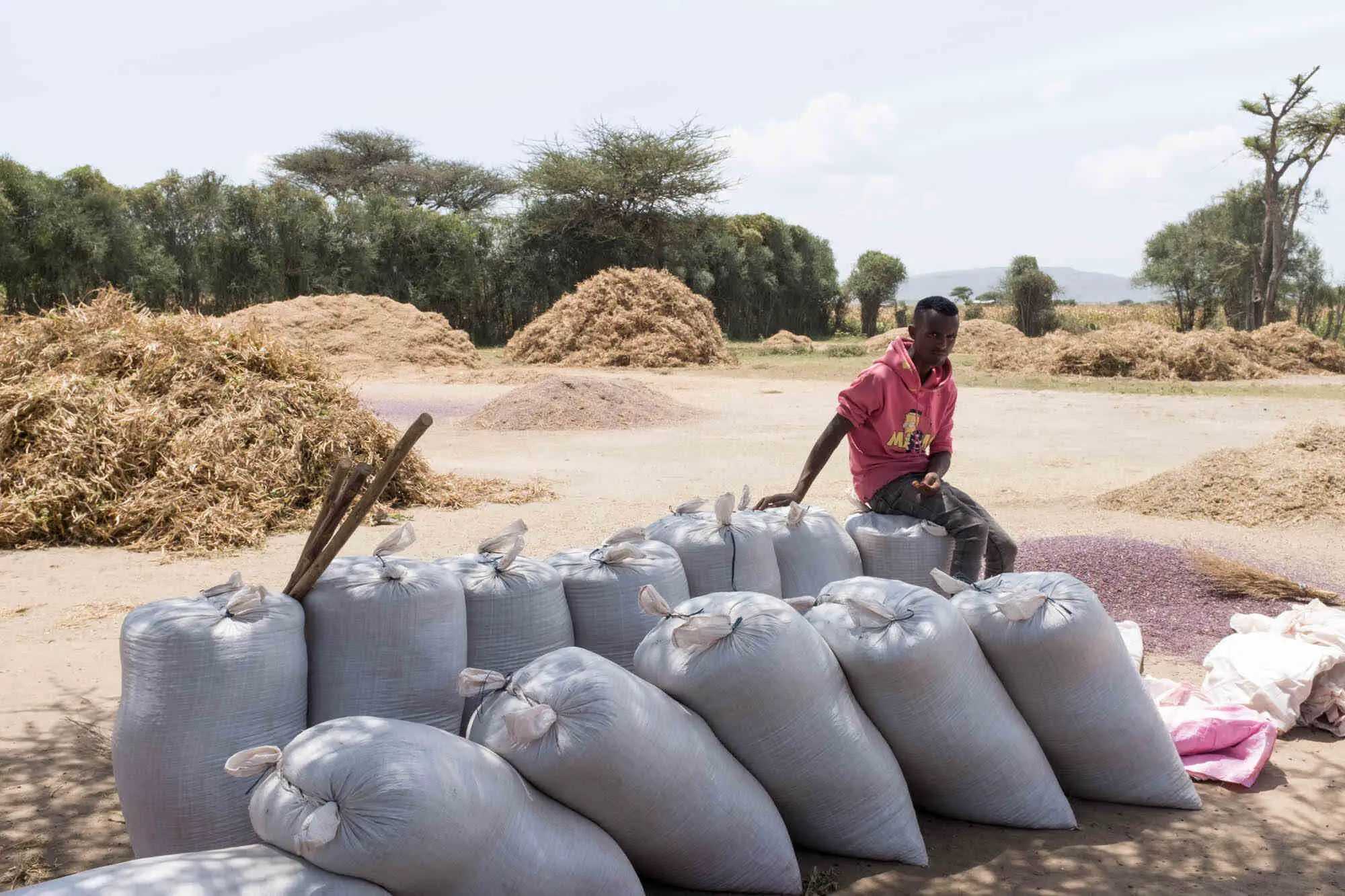Promote the Use of Legume Supply in Ethiopia (PULSE), 2021 - 2025
Donor: Achmea Foundation
Goal
The overall goal of the project is to improve the resilience and livelihoods of the rural population in Ethiopia by developing sustainable, market-oriented pulse value chains.
What we do
The project will implement a range of activities which support the development of different pulse crop value chains, and which close the gap between smallholder producers and buyers. This activity is complementary to EUCORD’s ongoing BOOST project, which aims to enhance the productivity of farmers and the quality of the resulting malt barley.
Crop rotation of barley with pulses improves the sustainability of the farming system as it reduces pest pressure and helps to improve soil fertility. In addition, the proposed project will also select woredas in lowland ecologies to improve the productivity of specific pulse crops adapted to the lowlands.
The project has three specific objectives:
- Improved productivity of pulse crops
- Improved farmers' access to inputs and finance
- Improved farmers' access to guaranteed markets
The primary target group consists of 6,500 smallholder farmers with a specific focus on women and youth groups who can be organized into cooperatives both for seed and output marketing.
Accomplishments
- The project reached 39,000 household members across 6,500 households, resulting in a 100% success rate.
- The project aims to increase the productivity of pulse crops by 30%. The survey results show a rise from 1.4 ton/ha to 2.6 ton/ha. The increase in productivity is calculated to be 185%.
- The project aimed to improve access to inputs and finance improved to cultivate pulse crops on 1500 ha. By the end 2,344 hectares of land were cultivated with a performance rate of 156%. The average annual income of beneficiary households increased by 95% far surpassing the target improvement of 30%.
- The project improved pulse productivity (+185%), household income and food security through training, seed multiplication, and value chain work. The project also promoted climate-smart practices strengthening farmers’ resilience.
Recommendations:
- Stakeholders' engagement in promoting Expanding Most Impactful Practices (MIP) to non-targeted kebeles and woredas ensures the project's sustainability, empowers communities, and fosters long-term positive change.
- Encourage model farmers to engage in seed production to improve access to quality seeds. Strengthening linkages between actors in seed systems enhances seed availability and accessibility, benefiting farmers and boosting productivity.
- Facilitate market access through digital platforms, connect farmers and traders and provide frequent price information, improve market access, empower farmers, and foster economic resilience.
- Addressing women's challenges in agriculture through detailed assessments and tailored activities creates equitable opportunities and aligns interventions with their priorities.


